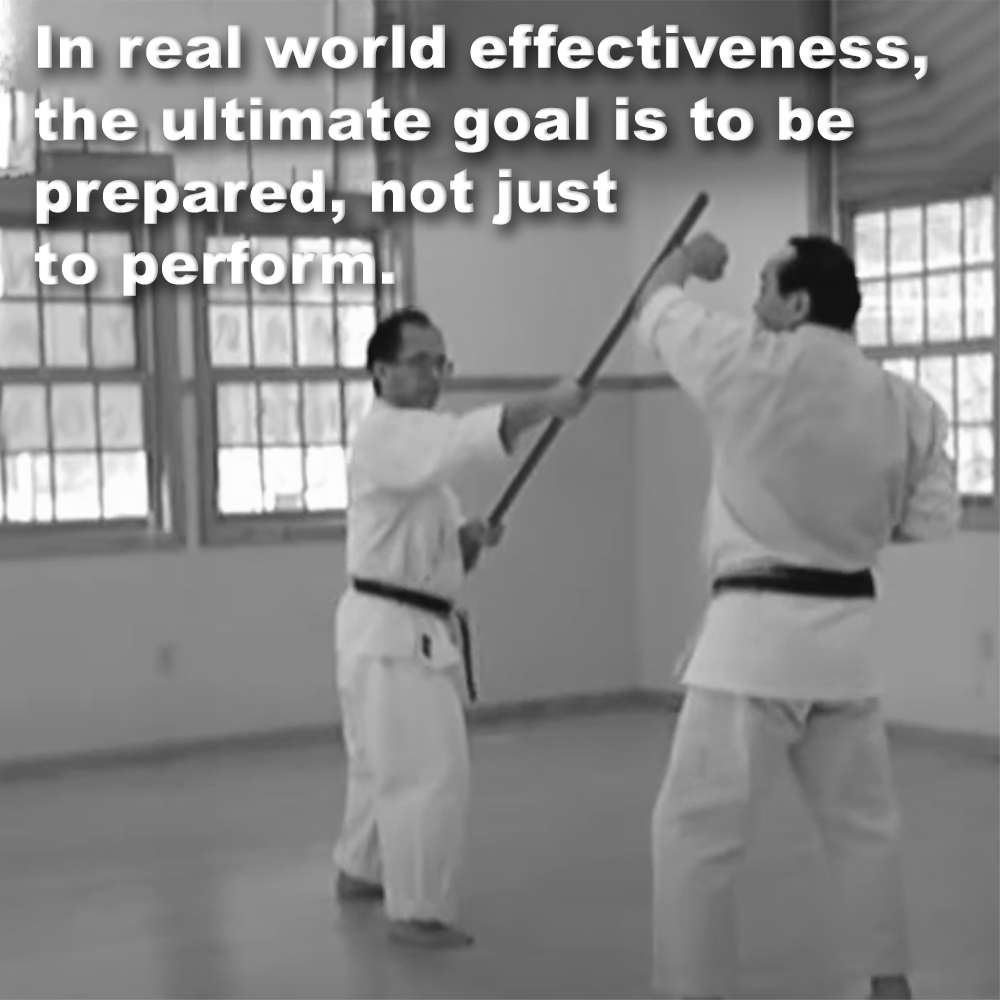
Emotions are powerful, but are they always the best guide in the martial arts?
.
While passion fuels our training, logic and common sense should offer a crucial perspective for developing functional combat skills.
.
The journey towards effective martial arts (if this is your goal), involves not just rote repetition, but also genuine understanding.
.
As you progress in your martial arts training and attain a proficient skill level, it is essential to cultivate a deeper understanding of your practice. Ideally, this phase should empower you to think independently and critically about your actions.
.
This is when you should look at your techniques and ask the question; “Would this actually work in a real-world scenario?” – And I don’t mean the usual scenario of a karate-on-karate attack and defense.
.
So let’s step outside the dojo and away from your training for a moment.
.
Consider this example: I recently witnessed a video demonstrating ‘bunkai’ (kata analysis) from the kata ‘Jitte’, where a practitioner is told to block a six-foot staff (Bo) with bare hands and using the forearms.
.
Imagine being unfamiliar with the martial arts and encountering this technique that claims to be able block the “Bo” (staff) attack with bare hands or forearm.
.
Now, let’s be real. Grab a sturdy piece of wood, a Bo is sometimes made of oak, and swing it wildly. The speed and force of that weapon, combined with its weight, would be immense. Do you honestly think blocking it with your bare arms would be feasible without injury?
.
So, trusting your “sensei’s wisdom” blindly, while ignoring physics, might leave you with more than a bruised ego.
.
Doesn’t common sense suggest that an unprotected limb faces a considerable threat from a swinging staff, given its weight and speed?
.
Emotions and loyalty to your instructor or association might lead you to believe otherwise, but logic and common sense should tell a different story.
.
We recognize that individual goals in martial arts can vary. Some pursue sport, some artistic or cultural aspects, and for them, different approaches might be “right.”
.
However, when discussing functional combat effectiveness, personal preference should take a backseat to objective practicality.
.
You must critically analyze what you learn, question claims, explore techniques through a logical lens, which should strengthen your understanding and help you to develop those practical combat skills.
.
While various interpretations and theories exist regarding kata applications, the “right one” ultimately depends on individual goals and training objectives.
.
And the “right one” for you may differ from mine.
.
Personal preferences are perfectly valid, but by embracing logic and common sense alongside emotions and personal preferences, you can develop a deeper understanding of techniques and ultimately cultivate practical skills that are truly effective in the real world.
.
Remember that in real world effectiveness, the ultimate goal is to be prepared, not just to perform.
.
Analyze what you learn, question those “block-with-your-face” moves, and find techniques that actually keep you safe and sound.
.
.
